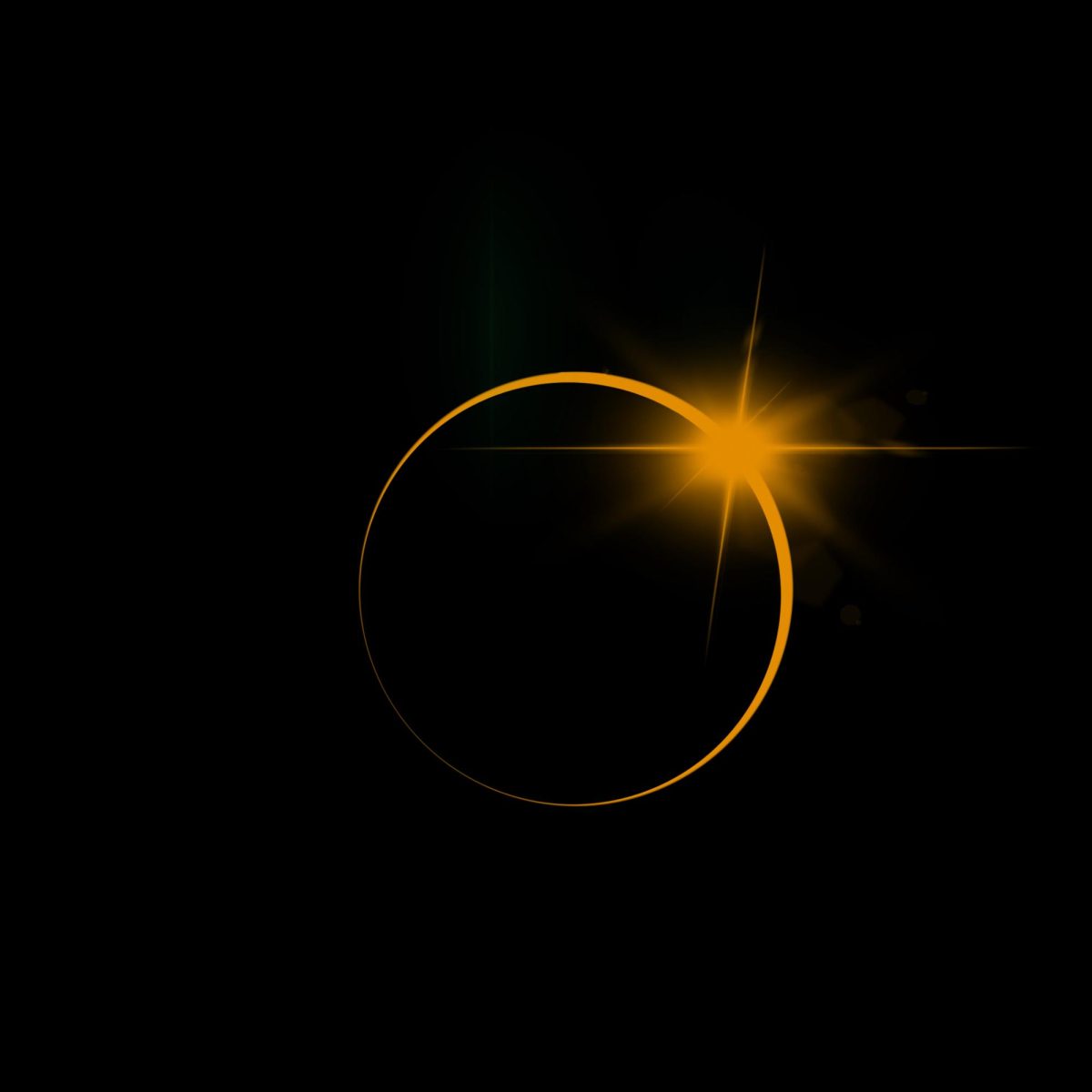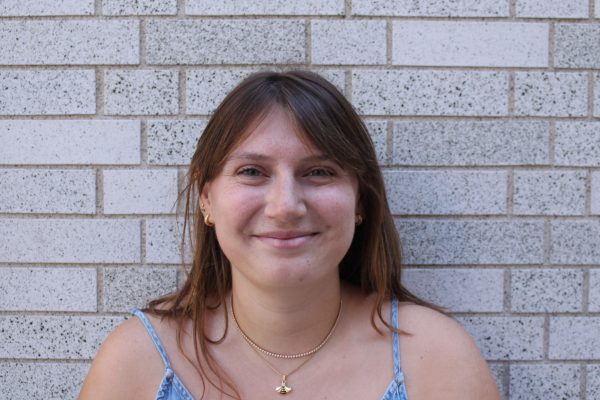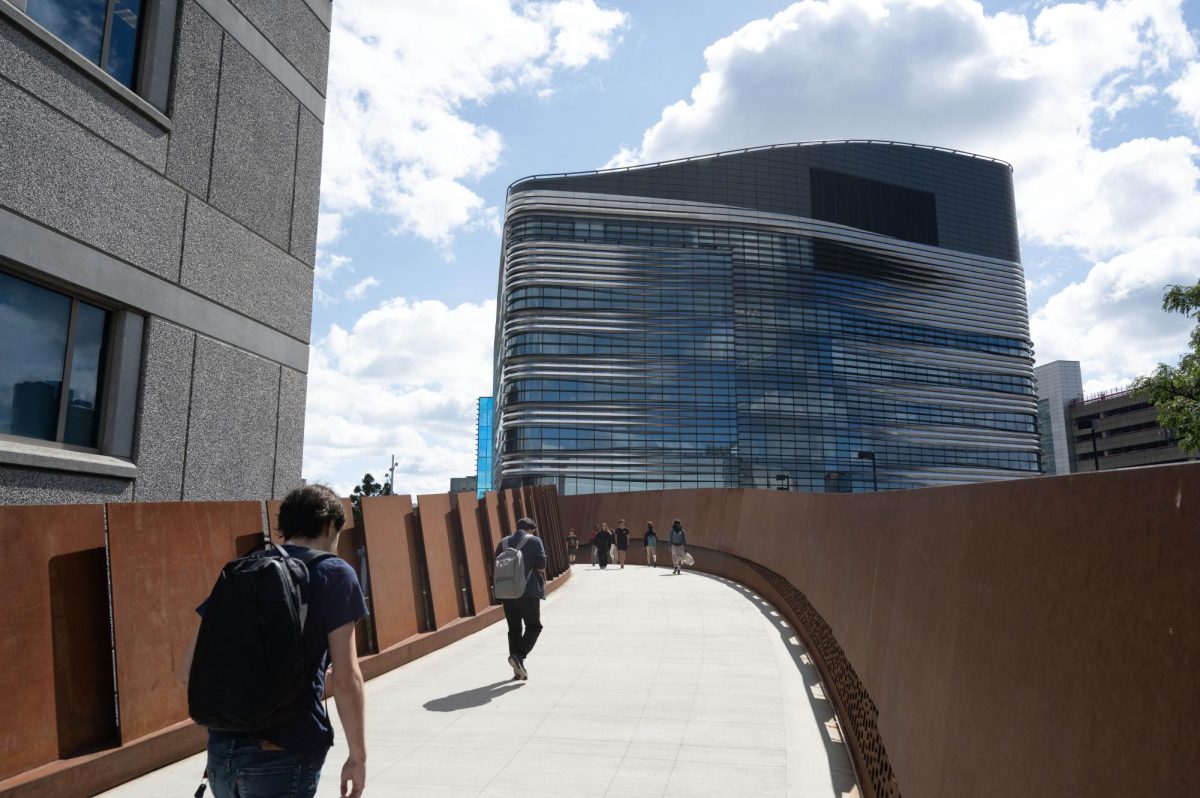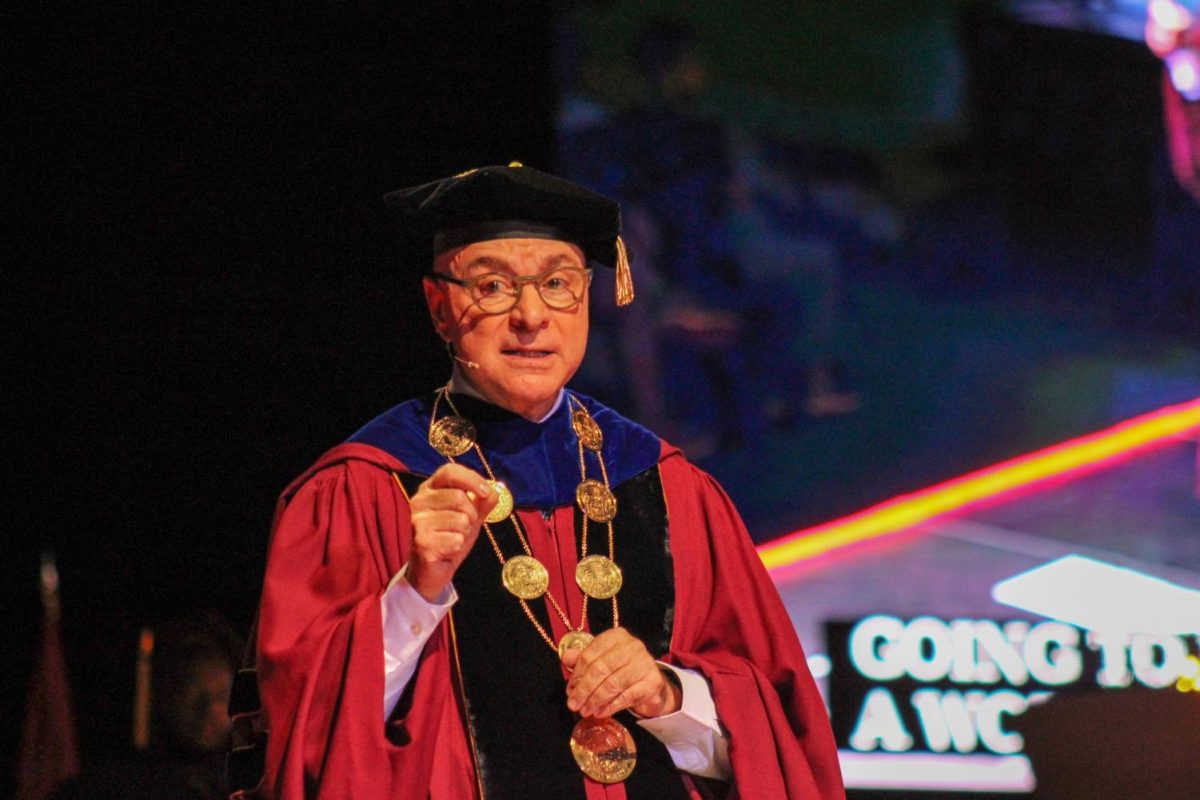When Kitty Tran heard the sun was disappearing, she jumped at the chance to see it.
Tran, a second-year business administration major, knows a solar eclipse is coming and plans to skip class Monday. Tran and friends are headed to Burlington, Vermont, a town on the 115-mile-wide band across parts of Mexico, the United States and Canada known as the eclipse’s “path of totality.” In places like Burlington, the sun will be entirely eclipsed by the moon for around four minutes.
“One of my friends approached me and was like, ‘Hey, next April 8, what does your Monday look like?’” Tran said. Despite finals, classes and assignments piling up, Tran was quickly swayed. “[My friend] said the next one’s in 20 years, and I just went, ‘Oh, let’s go see this eclipse!’”
While eclipses occur regularly across the Earth, only a handful are visible from land. The United States’ last total solar eclipse took place in 2017. April 8 marks the last time this phenomenon will be visible from the continent until 2044.
“In order to see the moon completely cover the sun, you need to be in the right place at the right time,” said Kelly Beatty, a specialist in planetary science from Chelmsford, Massachusetts and former writer for Sky and Telescope magazine. “And the good news for us is [it’s] not far away.”
This year, Massachusetts will experience 93% sun coverage, but the 7% makes a major difference. If a partial eclipse is a kid with a sparkler, the totality is fireworks on the Fourth of July.
Just a three-hour drive from Boston, Burlington is the perfect spot to witness totality, and eclipse chasers like Tran are rushing to prepare for what Beatty called a “life-changing” event.
“Where the sun had been in the sky, there’s a black bullet hole,” Beatty said. “The temperature drops 20 degrees, birds go to roost, cattle settle down and think it’s nighttime … It’s just such a multisensory experience, and a lot of people who see it for the first time are unprepared for how dramatic it [is].”
For some, seeing a total eclipse fulfills a lifelong dream. Alex Ginsberg, a second-year civil engineering major, traced his celestial passion to his childhood.
“As a kid … I’ve always loved space and planets and things beyond Earth,” he said. “To get to hear and learn about what a solar eclipse is is cool, but to actually experience it and go to it would be incredible.”
After learning he was so close to a full solar eclipse, Ginsberg wasted no time renting a car and planning his trip to Vermont. For Ginsberg and others like him, the solar eclipse is a personal passion. He advocated for taking the day off and heading to the path of totality.
“To me, a solar eclipse is much more rare and much more of an event to plan than just, ‘Let’s take a weekend to Maine or New Hampshire,’” he said. “I love rare astrological events like these. It’s a bucket list item to see.”
For those looking to stay close to home, Northeastern is holding an event of its own. Astronomy professor Stefan Kautsch is hosting an eclipse party at 2 p.m. on Krentzman Quad.
Solar_Eclipse_Ad“We will have some activities related to the sun and [a] sun telescope out there … a so-called ‘eclipsinator,’” Kautsch said. “ That’s a fancy way to see the sun … We’re building that from scratch right now.”
Seeing the eclipse requires the right equipment. Kautsch’s specially-constructed telescope offers protection from the sun’s glare and a close-up view. But those without the professor’s device will need a pair of eclipse glasses.
Kautsch explained how staring directly at the eclipse can cause permanent eye damage, even with the reduced sunlight. Special glasses with incredibly dark lenses can remove this risk, allowing the wearer to see the sun as it’s covered by the moon while blocking the intense light. Experts remind everyone interested in seeing the eclipse to pick up a free pair from a library or science museum.
“If you’re staring at the sun, it’s literally creating a little focused image of the sun on your retina, and it can burn and damage your retina,” Beatty said. “[These glasses] only allow one part in 100,000 of the sun’s light to come through … They are really essential, and they’re pretty easy to get.”
Eclipse veterans like Beatty have purchased eyewear and are heading much farther than Vermont for the best view of this cosmic convergence. The forecasted cloud coverage in Burlington is an ominous obstacle for Tran and Ginsberg. Beatty plans to avoid the risk.
“In order to see a total eclipse, the sky has to be clear.” Beatty and 220 totality tourists are headed to Fredericksburg, Texas, on an astronomically themed tour. “The weather prospects in Texas are a lot better than they are here in New England, which is why we’re headed down there.”
While the news isn’t all sunny, Beatty reminded Burlington visitors to remain hopeful. With proper preparation and a bit of luck, totality is within reach for anyone intrepid enough to see it.
Planning for the eclipse brings an opportunity for reflection. This unifying event brings students, professors and Americans everywhere together for one spectacular solar show. Whether chasing totality or staying in Boston, Kautsch urged everyone to look up April 8.
“An event like a solar eclipse makes people aware of our part in the cosmos,” Kautsch said. “You are aligned with the moon and the sun and the Earth … It’s a nice way to show that we here on Earth are part of [the] thing we call the universe.”














